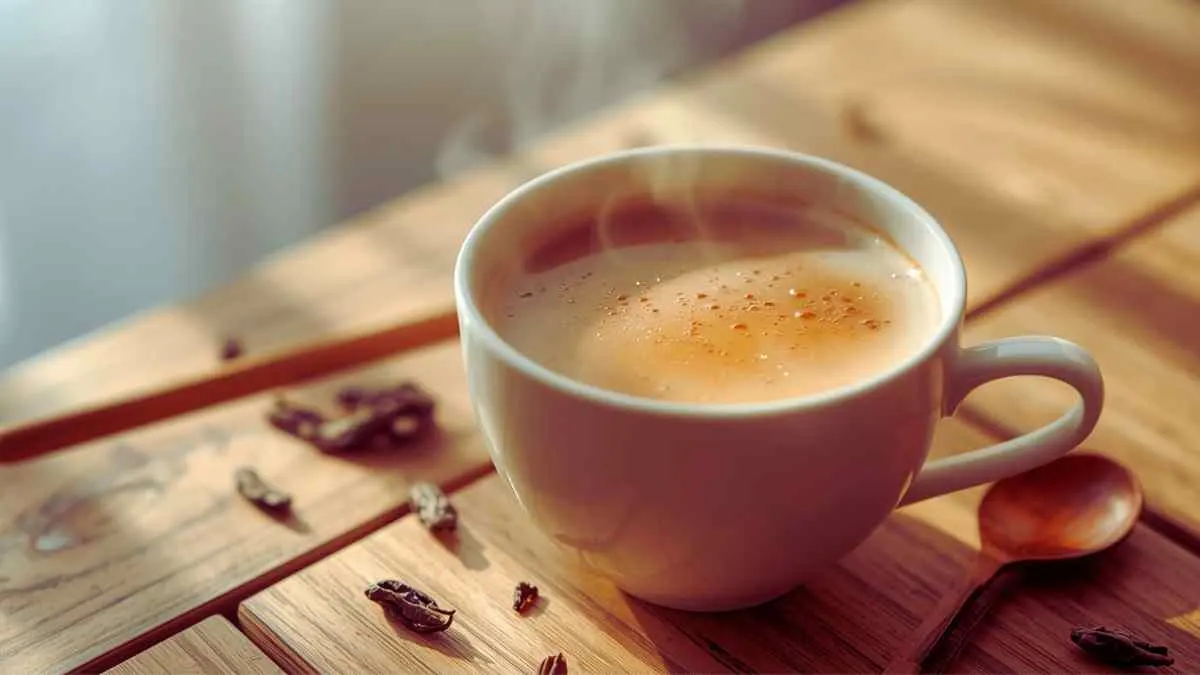Milk tea, a beloved beverage enjoyed worldwide, offers a delightful fusion of tea and milk.
If you’re sipping on a classic masala chai or indulging in a trendy bubble tea, understanding Milk Tea Advantages And Disadvantages that can help you make informed choices about its consumption.
What Is Milk Tea?
Milk tea refers to any tea-based drink combined with milk. Its origins trace back to Asia, with variations like bubble tea from Taiwan, masala chai from India, and Hong Kong-style milk tea. These drinks often incorporate unique ingredients and preparation methods, reflecting the rich cultural tapestry from which they hail.
Benefits of Milk Tea:

1. Rich in Nutrients
Combining tea with milk enhances the beverage’s nutritional profile. Tea provides antioxidants, while milk adds calcium, protein, and vitamin D, contributing to bone health and overall well-being. MedicineNet
2. Boosts Energy Levels
The caffeine content in tea offers a gentle energy lift, improving alertness and focus. When combined with milk, the absorption of caffeine is moderated, reducing the likelihood of jitters associated with stronger caffeinated drinks.
3. Supports Digestive Health
Traditional milk teas, especially those infused with spices like ginger and cardamom, can aid digestion. These spices have been known to soothe the digestive tract and alleviate discomfort.
4. Enhances Skin Health
The antioxidants present in tea, combined with the proteins in milk, can contribute to healthier skin. Regular consumption may help in reducing signs of aging and promoting a radiant complexion. MedicineNet
Drawbacks of Milk Tea:

1. High Sugar Content
Many commercially available milk teas are laden with added sugars. Excessive sugar intake can lead to weight gain, increased risk of diabetes, and dental issues. Healthshots
2. Caffeine-Related Side Effects
While caffeine can boost energy, overconsumption may lead to insomnia, increased heart rate, and anxiety. It’s essential to monitor intake, especially for individuals sensitive to caffeine. Healthshots
3. Digestive Discomfort
Consuming milk tea on an empty stomach can cause bloating and indigestion. The combination of caffeine and milk may irritate the stomach lining in some individuals. thehealthsite.com
4. Potential Additives in Toppings
Certain toppings, like tapioca pearls, may contain additives such as phthalates, which can pose health risks when consumed in large quantities over time. healthwire.pk
Tips for Healthier Milk Tea Consumption:
-
Opt for Less Sugar: Request reduced sugar levels or use natural sweeteners like honey or stevia.
-
Choose Quality Ingredients: Select teas with minimal additives and fresh milk or plant-based alternatives.
-
Limit Additives: Be cautious with toppings; consider enjoying your milk tea without them to reduce calorie intake.
-
Mind the Timing: Avoid drinking milk tea on an empty stomach to prevent digestive discomfort.
-
Stay Hydrated: Balance your milk tea intake with plenty of water throughout the day.
Common Questions About Milk Tea:
Q1: Is milk tea suitable for lactose-intolerant individuals?
A1: Yes, opting for plant-based milk alternatives like almond or oat milk can make milk tea suitable for those with lactose intolerance.
Q2: Can I enjoy milk tea while on a diet?
A2: Absolutely, by choosing unsweetened versions and limiting high-calorie toppings, milk tea can be enjoyed in moderation.
Recommended: Smooth Move Tea | My Honest Experience
Q3: How often should I consume milk tea?
A3: It’s best to enjoy milk tea occasionally, balancing it with a healthy diet and lifestyle.
Note: milk tea is a delightful beverage that, when consumed mindfully, can be part of a healthy lifestyle. By understanding its benefits and potential drawbacks, you can make informed choices that align with your health goals.

